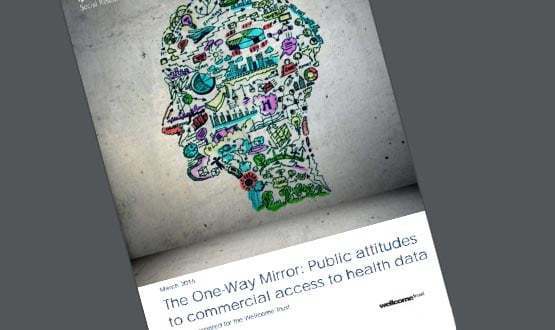Wellcome Trust issues new data sharing report
- 9 March 2016

The Wellcome Trust has returned to the debate about the use of health data with a report that finds hostility to sharing information with insurers and marketers and a need for companies and researchers to show 'public benefit' for this to be acceptable.
The trust has been involved in this area since its then-director, Dr Mark Walport, now the government’s chief scientific advisor, co-authored a data sharing review that strongly backed information sharing with researchers.
The review also floated the idea that the members of the public who used the NHS had a duty to allow their data to be shared, and that they should be assumed to have given ‘implied consent’ for this to happen.
The Wellcome Trust was also one of 40 medical research charities that put their names to a campaign to back data sharing that was launched as NHS England tried to obtain public support for the care.data programme.
This intervention was made as the commissioning board launched a leafleting campaign that was heavily criticised for failing to mention the project by name or to include an opt-out form.
The project is currently on hold ahead of a review of its consent and opt-out model by Dame Fiona Caldicott, which is expected imminently.
The latest, lengthy, report from the Wellcome Trust is significantly more circumspect, acknowledging that around 20% of the population will not want their health data shared in any circumstances, and that they should be opt-outs in place that respect this.
Otherwise, the report, which is based on an Ipsos Mori poll of 2,000 people and six workshops that explored different data sharing scenarios with 200 participants, says attitudes to data sharing vary according to the amount of public benefit that people think will arise.
So, the report says that sharing data with insurance companies is “considered unacceptable” and that sharing data with marketing companies is “considered broadly unacceptable”.
Access by other third parties is “seen as risky”, with only a narrow majority of those polled (53%) supporting the idea of data being used by commercial organisations for research and the workshops finding that this will only hold if “a company [has] a very explicit public benefit inherent in its work.”
Having said that, the 160 page report notes that the public know very little amount how much data is collected in the health service, how it is stored or safeguarded, or how it is used.
It recommends that there is a need for public education on these subjects, so people are “in a better position to understand the real risks or benefits of data sharing.”
Nicola Perrin, the head of policy at the Wellcome Trust, admitted on the Today programme on Radio 4 that care.data had left a “toxic legacy.”
In a release on the trust’s website, she said: “People are naturally cautious about the complexities and sensitivities surrounding their personal information, especially where these may not have been fully explained to them in the past.
“The research showed that in order for people to support this system they need – and want – to know much more about it, and that there must be an opportunity for them to opt-out.
“We must make sure there are no surprises for people about how their data could be used, especially by commercial organisations, and to do this it is critical that the government, the NHS and researchers work together to communicate and engage the public.”




